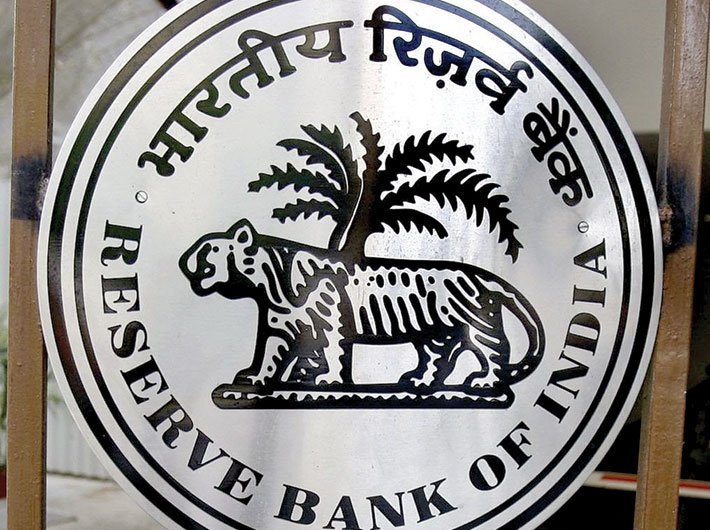The effort is to improve monetary transmission by ensuring that changes in the policy rate transmit quickly and adequately to banks’ lending rates in a transparent manner
An efficient monetary transmission is a sine qua non for the successful pursuit of its objectives by any central bank. Over the past two decades, it has been the endeavour of the Reserve Bank of India to strengthen the monetary transmission process, but these efforts have yet not yielded the desired results, said RBI deputy governor Viral V Acharya.
Delivering the Inaugural Aveek Guha Memorial Lecture in Mumbai, Acharya said that the transmission from the policy repo rate to bank lending rates, which is the dominant transmission channel in India, has remained a matter of concern. With the recent explicit objective of price stability mandated by the legislature, the issue of smooth monetary transmission has assumed an added significance.
“Against this backdrop, we have recently put out a report by the Internal Study Group to address the weaknesses of the existing monetary transmission system. A key suggestion before us is to whether to shift the loan pricing system from an internal benchmark to an external benchmark. The Reserve Bank will take a considered view in the matter at an appropriate time,” he said.
Speaking on “Monetary Transmission in India: Why is it important and why hasn’t it worked well?”, he said that in his view, “there is a deeper economic issue at hand in the recommendation to move towards an external benchmark”.
“The issue is: who should bear the interest rate risk in the economy – the borrower, or the depositor, or the bank? Who is likely to be better at managing the interest rate risk? Retail depositors and borrowers are unlikely to have efficient tools to manage the interest rate risk. Banks, however, should have the wherewithal to manage interest rate risk.
“Similarly, bulk depositors and large corporate borrowers can also be expected to be in a position to manage the interest rate risk. Non-bank financial institutions with less exposure to interest rate risk, such as insurance and pension funds, could also be good repositories of this risk. Foreign banks may be able to offset interest rate risk globally. A combination of interest-rate risk transfer mechanisms through market products such as interest-rate derivatives (swaps, in particular) and securitized products such as collateralized loan obligations (CLOs) will spring about, provided banks indeed have to manage the interest rate risk rather than have it as a matter of convenience to pass it onto borrowers.”
Acharya said that drawing from its comprehensive analysis, the RBI’s Study Group has suggested a number of steps to enhance transparency and transmission from monetary policy signals to the actual lending rates. Their recommendations pertain to improving transmission based on the existing lending rate system as well as a fundamental reform of the interest rate setting process. Let me touch upon the four major recommendation by the Study Group.
In view of the less than desired transmission and transparency under the internal benchmark based lending rate systems – PLR, BPLR, base rate and MCLR – so far, the Study Group has recommended that there is need to shift to an external benchmark based lending rate system. The internal benchmark-based pricing regimes are not in sync with global practices on pricing of bank loans. Given the scope of arbitrariness under the MCLR system, the Study Group has recommended that the switchover to an external benchmark needs to be pursued in a time-bound manner.
While recognising that no external instrument in India meets all the requirements of an ideal benchmark, and after analysing the pros and cons of 13 possible candidates, the Study Group has recommended that the Treasury Bill rate, the Certificate of Deposit (CD) rate, and the Reserve Bank of India’s policy repo rate are better suited than other interest rates to serve the role of an external benchmark. The Study Group has recommended that all floating rate loans extended beginning April 1, 2018 could be referenced to one of the three external benchmarks selected by the Reserve Bank after receiving and evaluating the feedback from stakeholders.
Second, the Study Group has recommended that the decision on the spread over the external benchmark could be left to the commercial judgment of banks, with the spread remaining fixed all through the term of the loan, unless there is a credit event.
Third, the periodicity of resetting the interest rates by banks on all floating rate loans, retail as well as corporate, be reduced from once in a year to once in a quarter to expedite the pass-through from the monetary policy signal to the actual lending rates.
Fourth, to reduce rigidity on liabilities side, banks be encouraged to accept deposits, especially bulk deposits, at floating rates linked directly to the selected external benchmark.
The common theme underlying these recommendations is to improve monetary transmission by ensuring that changes in the policy rate transmit quickly and adequately to banks’ lending rates in a transparent manner without any cross-subsidisation and discrimination between existing and new borrowers. The idea is also to make banks’ liability side more flexible so that the objectives of improving monetary transmission by the Reserve Bank and maintaining healthy net interest rate margins by banks are aligned.
The report of the Study Group, which was put in the public domain on October 4, 2017 has generated much interest and extensive feedback to the Reserve Bank from all stakeholders, not only banks, but also general public and media. We have received a number of useful suggestions and comments on the recommendations of the Study Group. These are being examined carefully and would help us to take a considered view, factoring in transition costs and providing a calibrated path to the desired benchmarking system.
Read the full lecture here
